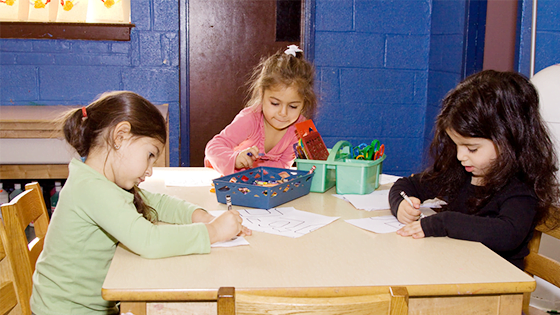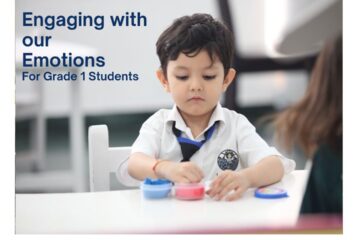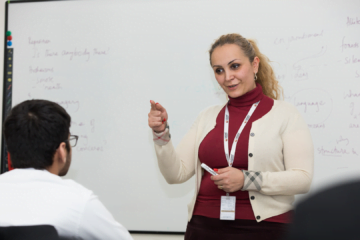What is rote learning?
Rote learning is where you memorize something based on the information. It involves memorization without full understanding. It is tough to know how the new information relates to your other stored knowledge. Few people consider rote learning to be important for certain subjects. International schools in Gurgaon no more support rote learning.
Though memorization is not the most effective way to learn but still a lot of students and even teachers use this method. Experts from many schools deny rote learning whether it is preschool, play school, nursery school or primary school.
Advantages of rote learning
- Helps to retain data like dates.
- It is a quick process.
- Easy way out method.
Drawbacks of rote learning
Children feel disinterested in their studies
Monotonous repetition of subject matter makes a child feel disinterested and tired. They slowly begin to distance themselves from the studies due to boredom. As a result, they lose their passion for learning over time.
Subject matter is not fully understood
Rote Learning, which usually happens at most of the primary schools in Gurgaon, ensures memorization without paying due attention to understanding. Instead of learning the concepts, children only learn what they need to score well in tests.
Learning stands short-term
Mindless parroting of textbook material leads to short-term memorization. This becomes a waste of a child’s energy and effort.
Problem-solving not prioritized
Rote learning only covers one aspect of education—memorization. It does not explain concepts and ideas behind the matter. It leaves children without the necessary critical thinking skills needed to succeed in an information-rich world.
What is meaningful or conceptual learning?
In contrast, conceptual learning involves understanding how all the pieces of an entire concept fit together. The knowledge through meaningful learning applies to new learning situations. This type of learning stays throughout the life with students. Students must have the ability to apply their learning in today’s competitive environment.
Meaningful learning allows students to be fully engaged in the learning process. Most importantly, it is active, constructive, and long-lasting.
Two crucial goals of all types of learning include retention and transfer. “Retention” is the ability to remember the subjects at a later stage. “Transfer” is the ability to use prior knowledge to solve new real-life problems. Students achieve meaningful learning when both of these goals are achieved.
Advantages of meaningful learning
This learning helps students achieve success in the classroom by:
- Encouraging understanding rather than not memorization
- Encouraging active learning techniques
- Focusing on the consequences of the learning process
- Relating new information to prior knowledge
Disadvantages of meaningful learning
The challenges associated with meaningful learning include:
- Takes longer to achieve
- Needs alteration for different types of learners
As a result, some students may face challenges with critical and conceptual learning as it requires building off previous knowledge. This is where teachers and mentors can help ensure students understand concepts so that meaningful learning can continue to happen.
Rote learning vs. meaningful learning
Experts at international schools emphasize the importance of deep understanding over the recalling of facts. Students who learn with critical thinking and conceptual learning are able to problem solve better than those who learn by rote.
Meaningful learning teaches students a lot of important cognitive skills they will use throughout their life. Cognitive skills are the skills that students use to evaluate, analyze, remember and make comparisons. In the long run, conceptual learning is the most effective way for students to engage in the learning process.
Conceptual Learning at International Schools
Likewise, many of the top educators at international schools in Gurgaon consider rote learning as a bad teaching. The main idea behind saying no to rote learning is dealing with real-life problems. One must truly learn things well enough to be able to use it in real-world problem-solving because that is what education is all about.
International Schools in Gurgaon have excellent faculty team which has trained and skilled educators. So, the faculty makes sure that they explain every topic clearly; giving a deep insight into the concepts so that their students can grasp the information.
Notably, Lancers Startup, daycare and nursery school in Gurgaon, promotes learning and thinking skills at preschool. Also, the teachers at the play school help foster brain development in your infant, toddler, preschooler, and kindergartner.
So how do LIS attempt to achieve this?
The IB school curriculum involves experiential, ‘hands on’ learning through activities that help learners inquire, discover and deduce. At Lancers International, the approach to learning is student-centric and encourages customization. It takes into account the various multiple intelligences and learning styles of children in the classroom. Learners ask questions and seek clarifications. Also, they pursue their own lines of inquiry in areas of their interest.
Therefore, for learning to be effective, long-lasting and meaningful, it should be diverse, interesting and engaging.




0 Comments